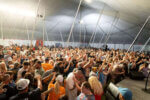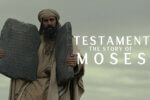I love Sarah Bessey’s book, Jesus Feminist: An Invitation to Revisit the Bible’s View of Women. In it, she says, “Jesus loves us on our own terms. He treats us as equals to the men around him; he listens, he does not belittle; he honors us; he challenges us; he teaches us; he includes us—calls us beloved…. Scripture affirms and celebrates women.” She writes a compelling argument for being a Christian feminist.
I agree with Sarah Bessey! And in a secular sense, I agree with equal pay, equal rights, freedom from sexual harassment and abuse, freedom from gender discrimination, the abolition of sex trafficking, etc. I especially believe women are equal in the kingdom and that they are not limited in the role they can play in the body of Christ.
But there’s something about the word “feminist” that has always bothered me. The term “feminism,” especially in a secular sense, can represent things I don’t particularly want to be associated with—like abortion and the whole gender/marriage debate. Feminists are often portrayed as putting down men, or at the very least, not needing them.
So it was with great interest that I learned during a lengthy car journey that the highly talented musician/singer, Laurie Thornton, who was driving the car, had studied Arab feminist (an oxymoron?) literature in college. We had a fascinating conversation, and she expounded on an idea that made great sense of what makes me cautious about feminism.
Here’s what she said: the problem is that most people believe there’s a finite amount of authority available. (I’m not sure about the word authority here, but I don’t know what other word to use. Bear with me—it will make sense.) The only way that one gender can have more authority is if the other gender has less. So if men are the ones to have authority, then women, by definition, have to have less. In feminism, often the reverse is seen to be true. If women have authority, it comes at the expense of men. There’s only one pie—the question is how is it shared?
But our God isn’t like that. There isn’t a finite supply of authority. He can create more. The pie is infinite. If women are to have authority, it doesn’t need to be at the expense of men. God will give them an authority of their own without diminishing that of men.
It’s the difference between having a bucket of water and a hose. We treat authority as though there’s only a bucket of water available. In reality, God has a hose and there’s plenty for everyone.
Adapted from Felicity Dale’s blog, Kingdom Women. Felicity Dale is the author of numerous books including The Black Swan Effect and Simply Church. She is an an advocate for women in the church and trains people to start simple, organic house churches around the world.







Leave a Comment
You must be logged in to post a comment.